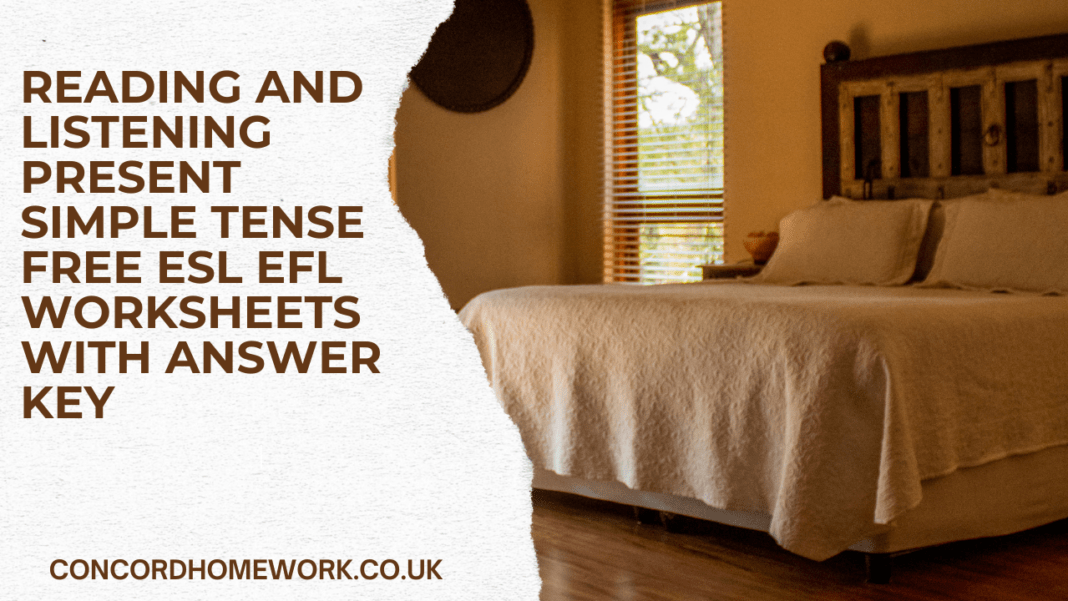Read and listen. Complete the sentences with the correct verb.
This worksheet has a reading passage about a couple who work in a hotel. Students fill in the blanks to practice the simple present tense. The worksheet has an answer key.
The Simple Present Tense – Definition:
The simple present tense is used to describe actions that are habitual, routine, or generally true. It is formed by using the base form of the verb.
Examples:
| Pronoun | Positive Statement | Negative Statement | Question |
|---|---|---|---|
| I | I play tennis every weekend. | I don’t play tennis every weekend. | Do I play tennis every weekend? |
| You | You like chocolate ice cream. | You don’t like chocolate ice cream. | Do you like chocolate ice cream? |
| He/She/It | She works at a bank. | She doesn’t work at a bank. | Does she work at a bank? |
| We | We study English together. | We don’t study English together. | Do we study English together? |
| They | They live in New York City. | They don’t live in New York City. | Do they live in New York City? |
Usage:
- Habitual Actions:
- Use the simple present tense to describe actions that happen regularly or habitually.
- Example: “I brush my teeth twice a day.”
- Use the simple present tense to describe actions that happen regularly or habitually.
- Facts and General Truths:
- Use the simple present tense to state facts or general truths.
- Example: “Water boils at 100 degrees Celsius.”
- Use the simple present tense to state facts or general truths.
- Scheduled Events:
- Use the simple present tense to talk about scheduled future events, especially for timetables and schedules.
- Example: “The train departs at 9:00 AM tomorrow.”
- Use the simple present tense to talk about scheduled future events, especially for timetables and schedules.
- State Verbs:
- Use the simple present tense with state verbs to describe ongoing states or conditions.
- Example: “She loves chocolate.”
- Use the simple present tense with state verbs to describe ongoing states or conditions.
Classroom Language:
- Teacher Instructions: “We start the lesson at 9:00 AM.”
- Student Responses: “I understand the lesson.”
- Asking Questions: “Do you like to read books?”
- Describing Routines: “He always arrives early for class.”
What should our team prepare for you?
What topics do you need?
“Thank you for taking the time to explore this topic with us! We hope you found the information helpful and insightful. Have any thoughts, questions, or additional examples to share? We’d love to hear from you in the comments below!
Don’t forget to spread the word by sharing this blog with your friends, family, and colleagues. Together, let’s continue to learn, grow, and connect with the world around us. Happy reading and sharing!”




















